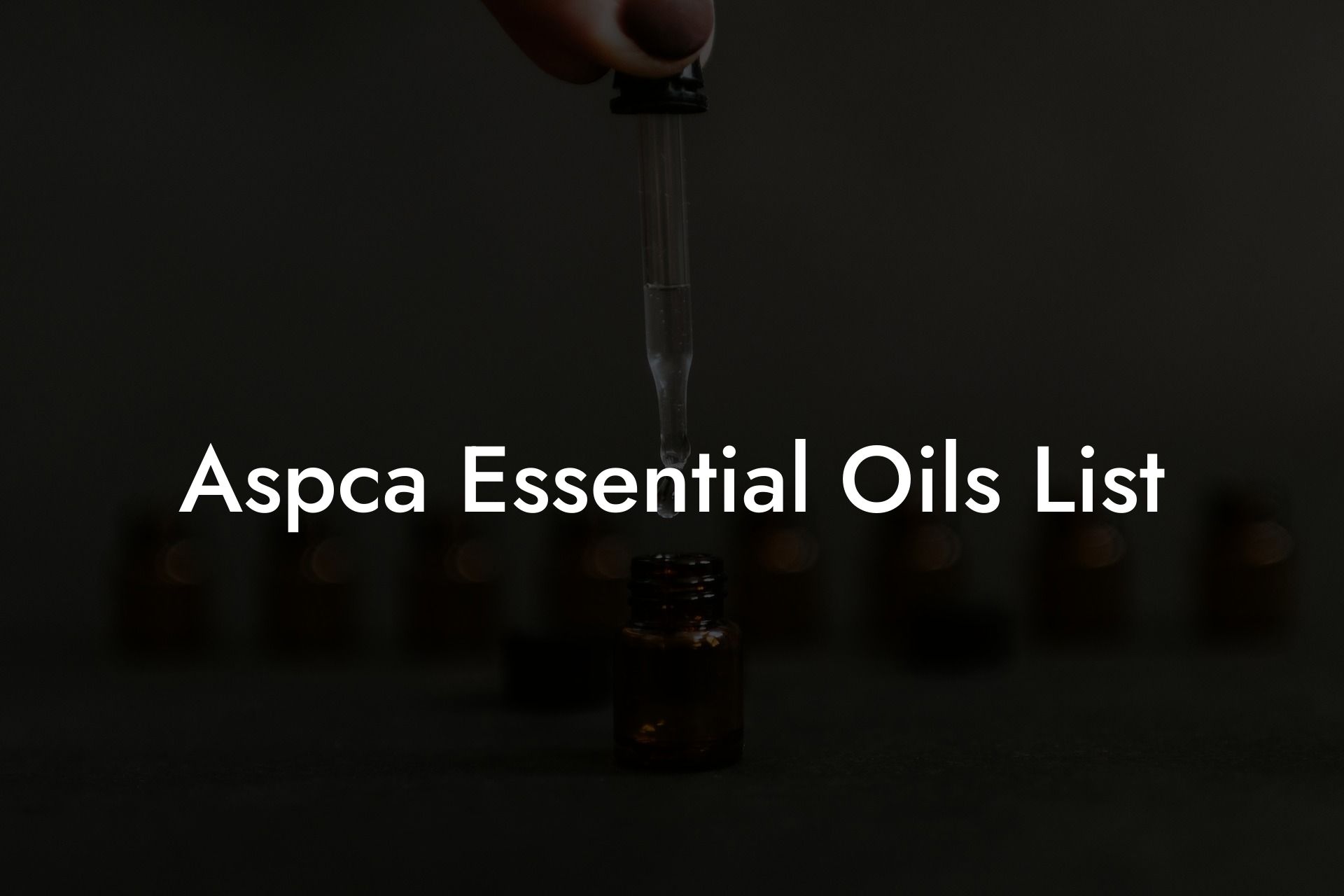Discover the wonders of essential oils and their non-toxic nature for pets through the American Society for the Prevention of Cruelty to Animals (ASPCA) Essential Oils List. Gain insights into the compatibility of these oils with the furry members of your family and learn about the benefits and precautions in this comprehensive guide.
Table of Contents
ASPCA Approved Essential Oils
Essential oils are known for their numerous benefits, from improving well-being to providing relief from several ailments. However, when sharing a home with pets, it’s essential to ensure that the oils you use are compatible with the furry members of your family.
The American Society for the Prevention of Cruelty to Animals (ASPCA) has compiled a list of essential oils that are safe and not harmful to pets. It is imperative to familiarize yourself with this list to benefit from essential oils while protecting your pets.
Essential Oils that are Pet-safe
The following essential oils have been deemed safe for use around pets by the ASPCA:
– Lavender: Known for its calming properties, lavender oil can effectively help both humans and pets relax.
– Chamomile: This soothing oil may help with allergies, stress, and anxiety in pets.
– Cedarwood: Cedarwood oil can help repel fleas and ticks while providing a comforting scent for you and your pets.
Essential Oils to Avoid Around Pets
Some essential oils are toxic to pets and should be avoided or used with caution. Here are a few examples:
– Tea Tree: While this oil offers benefits for humans, it can be toxic to dogs and cats if ingested or absorbed through the skin.
– Eucalyptus: This strong oil can be irritating to pets’ respiratory systems and should be avoided.
– Peppermint: While generally safe for humans, peppermint oil can be harmful to pets if ingested or applied to their skin.
Precautions When Using Essential Oils
Keep Essential Oils Out of Reach
Always store your essential oils in a secure location out of reach of your pets, and never leave them unattended with access to the oils.
Ensure the Proper Dilution of Essential Oils
Always dilute essential oils with a carrier oil before using them, as undiluted oils can be harmful to both humans and pets.
Use a Pet-friendly Diffuser
When using a diffuser, choose an ultrasonic diffuser rather than a heated one, as the latter can change the chemical structure of the oil, making it more toxic to pets.
Monitor Your Pet’s Reaction
Observe your pet’s behavior when you introduce a new essential oil. If they start to show signs of distress or irritation, immediately stop using the oil and consult your veterinarian.
Aspca Essential Oils List Example:
Imagine coming home after a long day at work, and you decide to unwind with a soothing aromatherapy session using your favorite essential oil blend. Before beginning your session, you double-check the ASPCA essential oils list to make sure that none of the oils pose harm to your beloved pets. You safely choose lavender, an oil that is both soothing for you and safe for your four-legged friends.
By diffusing a pet-safe blend, you can create a relaxed and peaceful environment for your entire household. You also have the peace of mind that you’re not exposing your pets to potentially toxic substances.
Now that you’re aware of the ASPCA essential oils list and the precautions needed when using essential oils around pets, you’re well-equipped to create a pet-friendly atmosphere while enjoying the benefits of essential oils yourself. Share this valuable information with fellow pet owners, explore more informative guides on Oshu Oils, and enhance your aromatherapy experience with Oshu Oils’ exquisite range of essential oils and blends.





















